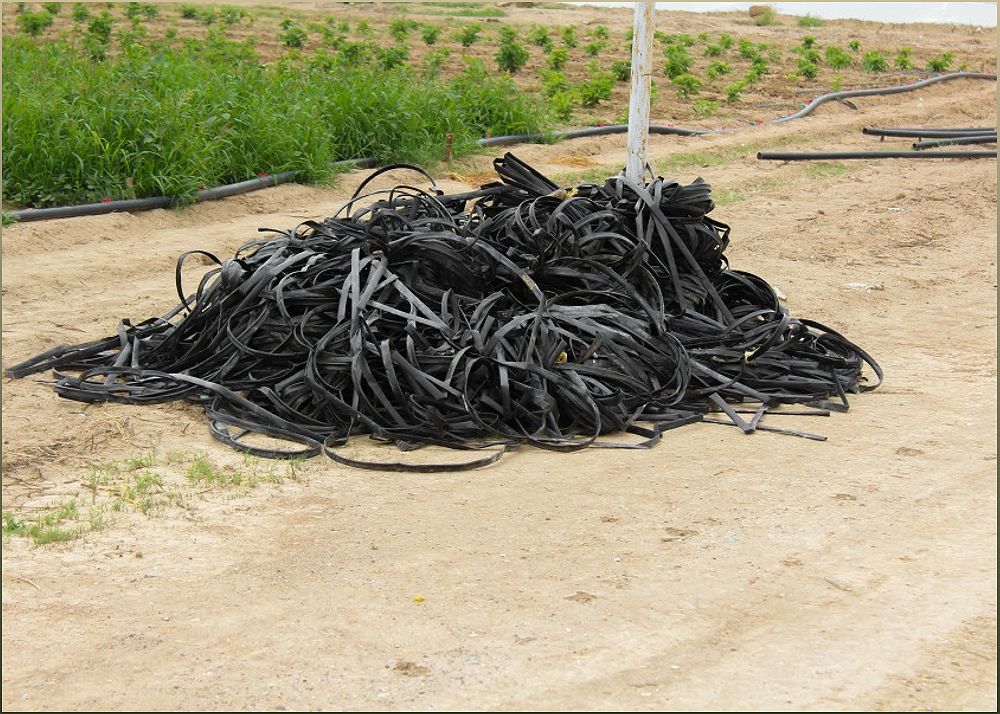Learn about innovative experiments and strategies discussed at the Organic Confluences Day to reduce plastic use in the organic supply chain, including swapping plastic covers for fiber alternatives, incorporating peel-and-reseal trays, and using soil-biodegradable plastic for mulch.
The Impact of Plastic in the Organic Supply Chain
Plastics have become an integral part of the produce supply chain, including organic farming. While organic practices aim to promote biodiversity and soil health, plastic is often used to address challenges without synthetic inputs. However, the Organic Trade Association (OTA) and The Organic Center are taking steps to address the issue of plastic reliance in organic production. During the recent Organic Confluences Day, industry leaders, researchers, and farmers came together to discuss strategies for reducing plastic throughout the entire organic supply chain.

( Credit to: Thepacker )
Collaborative Efforts to Reduce Plastic Use
The Importance of Collaboration:
The conference aimed to foster collaboration and communication across the organic sector, involving policymakers and researchers. By bringing together diverse perspectives, the industry can collectively reimagine plastic use in organic production. This shared responsibility highlights the need for collaboration and input from all stakeholders to find effective solutions.
Swapping Plastic Covers for Sustainable Alternatives
Swapping Plastic Covers for Fiber Alternatives:
The Organically Grown Co. successfully reduced plastic use in its banana program by 95% by replacing plastic stretch wrap with reusable ‘banana blankets.’ These blankets, recommended by the company’s Sustainability Committee and Food Safety team, provided the necessary warmth for ripening bunches. This simple switch not only reduced plastic waste but also demonstrated the feasibility of sustainable alternatives.
Innovative Packaging Solutions for Organic Greens
Incorporating Peel-and-Reseal Trays:
Taylor Farms, under its Earthbound Farm Brand, introduced a packaging solution that utilizes a 100% post-consumer recycled tray with 27%-35% less plastic. These trays feature a peel-and-reseal lidding film, maintaining a controlled atmosphere for organic greens. This innovative packaging not only reduces plastic waste but also ensures the freshness and quality of the produce.
Transitioning to Biodegradable Mulch
Swapping Single-Use Mulch for Soil-Biodegradable Plastic:
Polyethylene mulch is commonly used in organic agriculture for weed control, moisture retention, and soil temperature regulation. However, the adoption of soil-biodegradable plastics for mulching presents an opportunity to reduce pollution and microplastic exposure. By transitioning to biodegradable alternatives, organic farmers can minimize their environmental impact while maintaining effective crop management practices.
Conclusion: Striving Towards a Plastic-Free Future
Plastic use in the organic supply chain poses challenges to the organic ethos, but it remains an essential tool for organic farmers to ensure productivity and profitability. However, by actively seeking alternatives and implementing innovative solutions, the organic industry can make significant strides in reducing plastic waste. The Organic Confluences Day provided a platform for collaboration and knowledge sharing, emphasizing the industry’s commitment to finding sustainable alternatives. With continued efforts and collective action, the organic sector can lead the way towards a more plastic-free future.
